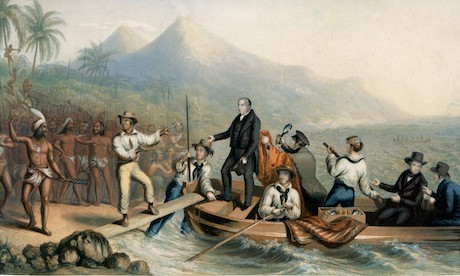After assessing Christian missionary efforts from 1668 to 1950, researchers claim to have found the spread of Christianity in the Pacific was driven more by the influence of political leaders than grassroots empowerment.
This challenges one of the most widely cited reasons for Christianity’s popularity, that it spread from the “bottom-up” by empowering lower classes and promising to improve the lives of the less privileged in the afterlife.
The finding is in a just-published study in the journal ‘Nature Science Communications’ which studied 70 Austronesian cultures in the region.
One of the report’s authors, Auckland University’s Quentin Atkinson, said: “We have this data on these 70 different cultures across the Pacific and they have different political structures, their cultures are different sizes – so different population sizes – and different levels of inequality.”
Atkinson said the authors studied two hypotheses on Christianity’s spread in the Pacific: whether leaders converted their people, or whether the people forced their leaders to convert.
He said the researchers looked at three different factors:
- The strength of the political structure
- The degree of inequality
- Population size and degree of isolation
After assessing Christian missionary efforts from 1668 to 1950, the researchers found:
- The adoption of Christianity typically took less than 30 years, and societies with political leadership and smaller populations were fastest to convert
- Social inequality did not reliably affect conversion times
The results suggest that Christianity’s success in the Pacific can be attributed to a top-down process.
It was not an egalitarian doctrine empowering social underclasses.
“If you go back to some of the records of the early missionaries, a couple of the successful missionaries actually explicitly talk about deliberately targetting the leaders because that’s where they see the power,” Atkinson said. “The level of inequality didn’t affect the conversion type. So that supports the top-down argument.”
Listen to interview
Source
Additional readingNews category: Asia Pacific.




